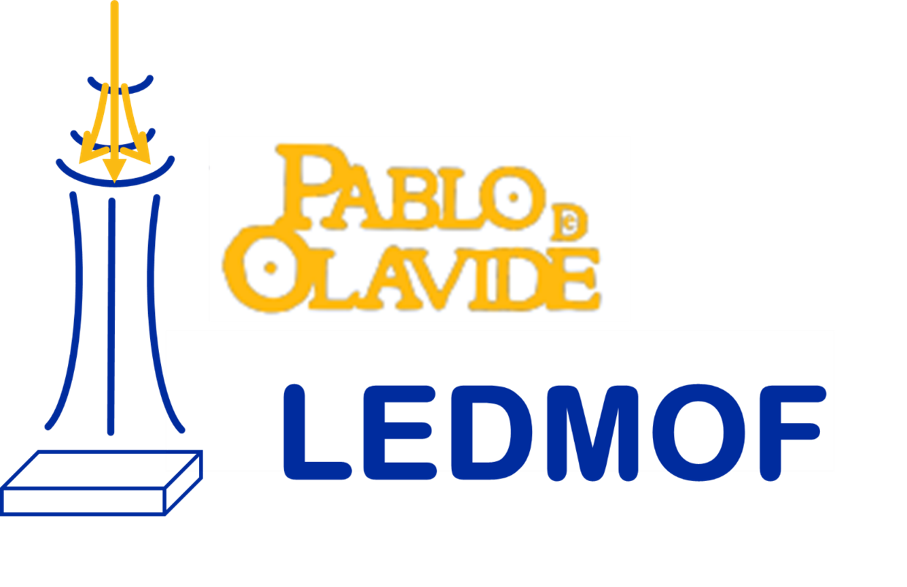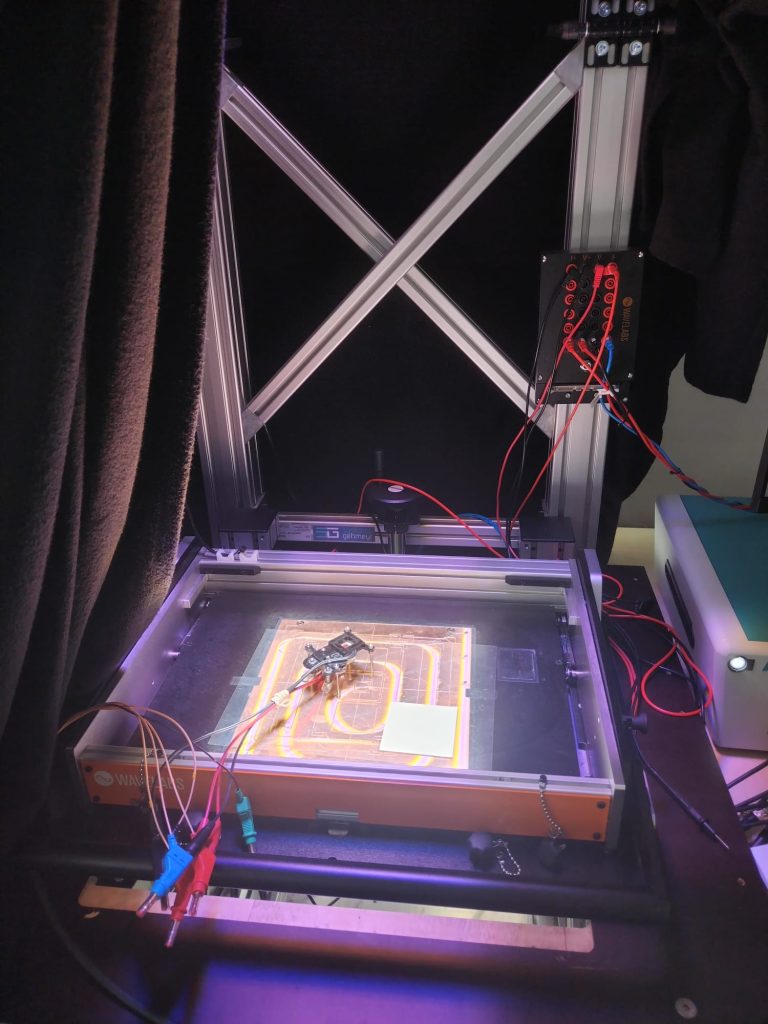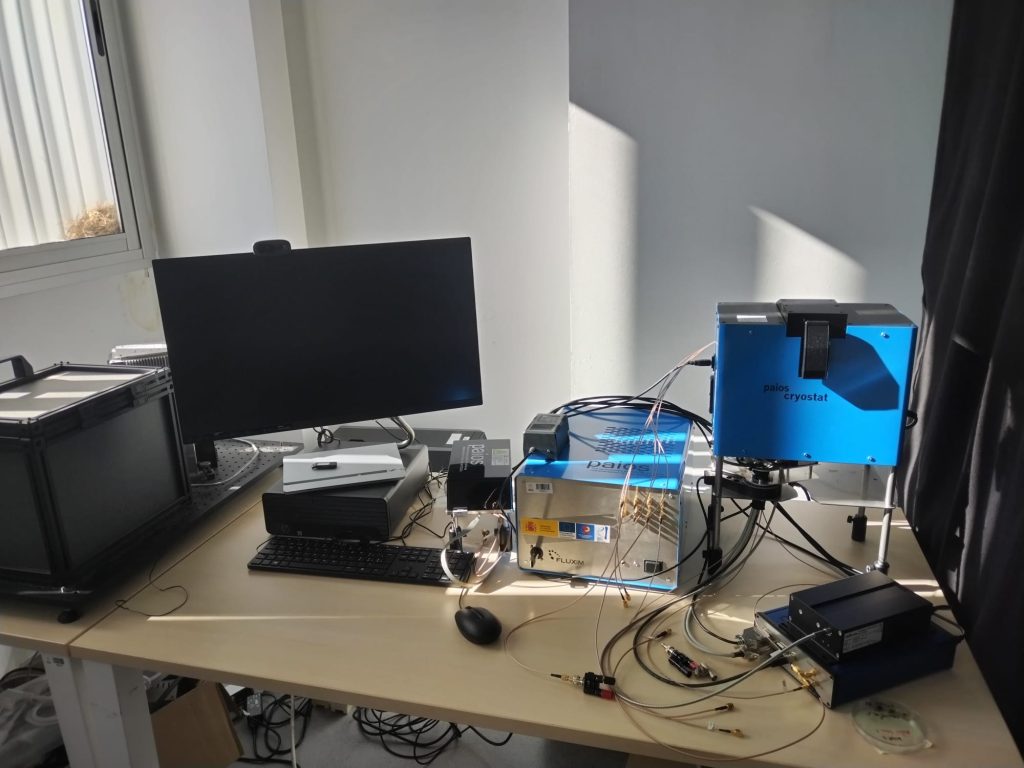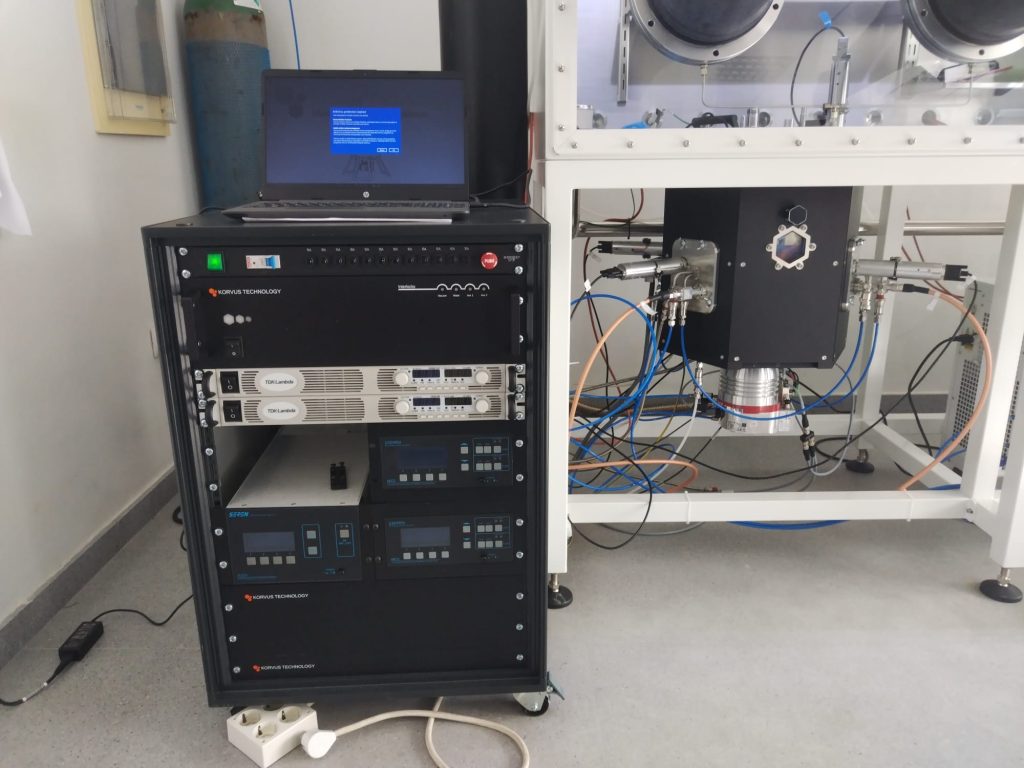
LEDMOF
Laboratory for Testing and Diagnostics of Photovoltaic Cells and Sub-Modules
Information
LEDMOF is a dedicated laboratory for the testing and diagnostics of solar cells and submodules. It focuses on the development of emerging photovoltaic technologies (abundant materials, nanostructured devices) and devices spanning the range from small scale laboratory devices up to in pre-industrial scale submodules.
The LEDMOF facilities enable the performance testing of photovoltaic devices under different calibrated standard conditions, up to small-scale modules (22 x 22 cm2). Advanced opto-electronic methodologies based on small perturbation techniques (impedance, intensity-modulated photocurrent spectroscopy (IMPS), intensity-modulated photovoltage spectroscopy (IMVS) enable detailed characterization of the different photovoltaic technologies. These characterizations can be correlated to numerical device simulations based on drift-diffusion models, offering a detailed loss analysis and guidance for the device optimization.
LEDMOF is designed for the support of the commercialization of emerging photovoltaic technologies, e.g. by addressing problems arising during the upscaling process, interconnection of cells or stability/degradation issues.
The main infrastructure and equipment of LEDMOF consist of:
- An LED-based solar simulator (exceeding AAA specifications for the standard spectrum AM1.5) from WAVELABS (Sinus 300, 21 light channels, and included temperature control) allows for the performance testing of single-junction or tandem devices under varying illumination conditions. Spectral, thermal or intensity variations of the illumination can be programmed to match specific meteorological. The system allows the measurement of devices with an active area of up to 22 x 22 cm2.
- An advanced commercial opto-electronic characterization setup (PAIOS from FLUXIM), for the characterization of opto-electronic devices with small pertubation methodologies (impedance, IMVS, IMPS), as well as customized current-voltage sweeps. The system is equipped with a LED filter wheel for illumination at different wavelengths and a temperature control chamber. The analysis data can be directly imported into the drift-diffusion modelling software SETFOS for the numerical simulation of devices.
- A nitrogen glovebox for the processing of contact/charge extraction layers and handling of samples sensitive to moisture and/or oxygen.
- A multi-purpose vacuum-based deposition system (KORVUS, HEX-L), for the deposition of metallic/metal-oxide contacts by sputtering or thermal evaporation.
- A climate chamber that allows performing stability measurements, degradation analysis and stressing tests under precisely controlled humidity and temperature conditions.
Coordinator:
Paul Pistor, ppis@upo.es
Service rates:
(to be filled out later)
Application form:
(to be filled out later)



